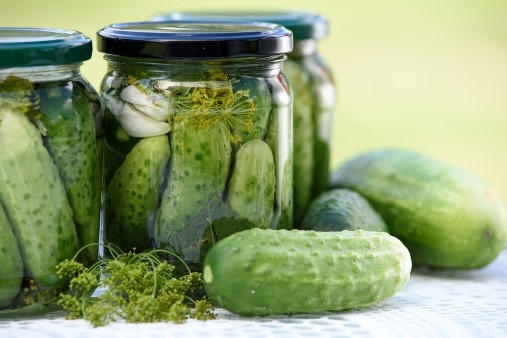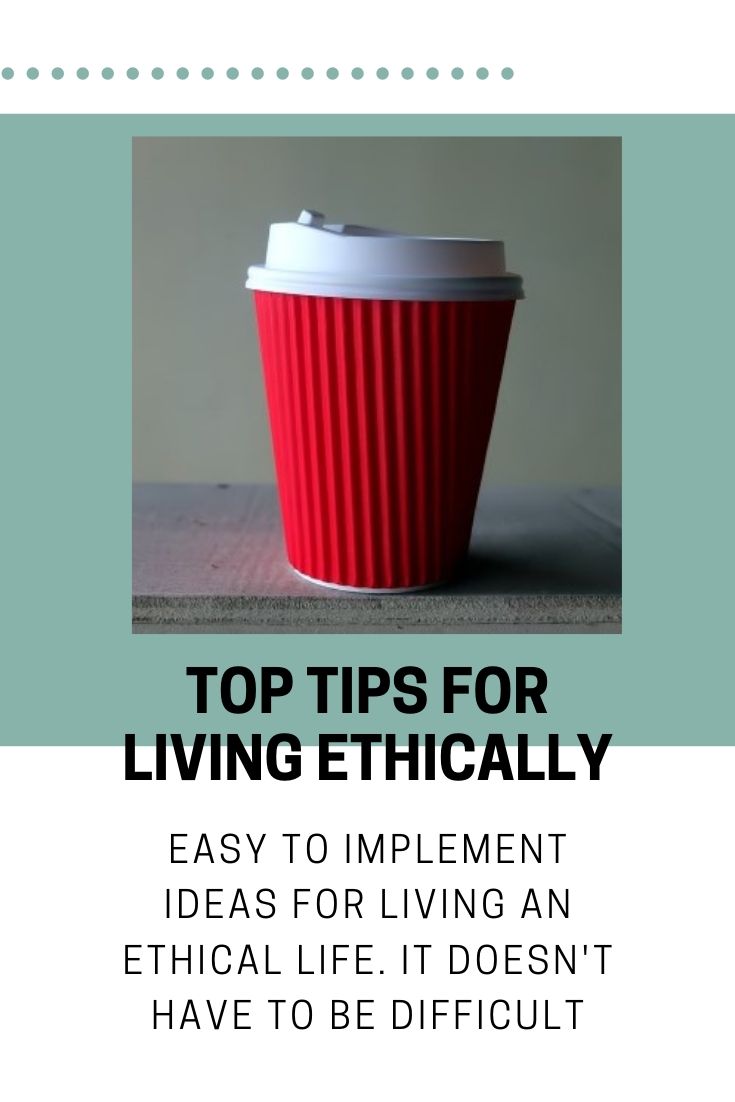To live an ethical lifestyle you don’t have to make radical changes; small conscious steps taken regularly can have a huge positive impact. Try these tips.
[This is a guest post by Judith Newton of An Ethical Life]
Mosquitos of the world unite – together we can make a difference!
Looking at the news on television quite often frightens me. All the pain, anguish, and hardship can sometimes be too much to bear. We see our beautiful environment being destroyed, injustices occurring in all parts of our world, and people being mistreated and exploited in ways that are unimaginable to us. We see men, women and children being enslaved in jobs like agriculture, construction, manufacturing, domestic work, and the commercial sex industry. They live with threats of physical or sexual violence towards themselves and their families, isolation, denial of food and sleep, and no freedom. Our hearts break, but we just don’t know what we can do to help.

So, what on earth does a mosquito have to do with making a difference in this crazy, confused world we live in? Well let’s look no further than the words of the Dalai Lama – “If you think you are too small to make a difference, try sleeping with a mosquito.” No thank you, that would drive me mad! Each and every one of us can make a difference. It’s when our efforts are combined that we can make an impact in this world. Never discount the power of one!
Some simple steps towards living a more ethical lifestyle
Well you ask, what can I personally do to make a difference? Let’s build on the example of modern slavery above. Modern slavery can impact every aspect our daily lives because the industries where people are most likely to be enslaved and exploited produce many of the goods that we use every day; like the coffee we drink, the chocolate we eat, and the clothes we wear. By choosing not to purchase products that have been made by slaves, we can begin to make a difference through the law of supply and demand. If we stop demand through not purchasing these products, then supply of them will reduce as we will have a negative impact on the profits of the supplier, manufacturers and brands. Additionally, if we start purchasing products that are fair-trade and free from slavery;s demand and supply of these products will increase. This is the purchasing power we as individuals have – pretty awesome really!

More sustainable living examples
The same goes for environmental issues too. It’s Plastic Free July right now and you’ve probably seen a lot about it in traditional and social media telling us what we can do in our own lives to reduce plastics and stop them going into the oceans and landfill. For example, if we stop buying our coffee in take-away cups and start using our own refillable keep-cups, demand for the take-away cups will eventually reduce and there will be less of them manufactured and subsequently less ending up as litter and waste.
And of course take your own water bottle with you everywhere, lots of great options at Biome, including this one
We all can make a difference by living an ethical life and making considered, caring, and compassionate decisions.
It’s never too late to start making better choices, and often they will also be good for your finances too. First, before you buy something, ask yourself if you really need it? (this is where values based budgeting comes in). Can you possibly borrow it from a friend or perhaps repurpose something you already own?
It’s so easy to just say “Let’s get a new one” but where does the old one end up? Most likely in landfill and destroying our earth and oceans. Ask yourself if you really need to keep consuming, getting more and more things, and contributing to this disposable society? I’m guessing the answer is no!
Next have a look at what you have in your home right now. Do you really need everything? Could a family member, a friend, or even a stranger benefit from some of your stuff? Now I’m not recommending you go all minimalist on me because I actually like a home that has trinkets, photographs, and memories in it, but let’s face it, some of are good at hoarding things and keeping them just in case. But does that day ever come? Probably not, so if you haven’t used it in the last year and it’s not a treasured possession, then seriously think about giving it to someone who might need it more. Try these tips for decluttering.
Are your clothing choices ethical and sustainable?

Even though our clothing style changes after we retire, we still enjoy dressing nicely and buying new clothes. However, there are some things we can do to dress in a more ethical way. First look at what you already have in your wardrobe. Can it be worn again this year or perhaps updated by wearing it with a new scarf? Take some time to consider what you already own and be creative in restyling it to suit this season’s look. Buy from suppliers that have taken concrete steps to improve the lot of their workers; Australian made is a great start. Consider also looking at quality second-hand clothing or charity shops for your clothing purchases. By doing this you are contributing to the circular economy by buying clothing that has already been manufactured and worn and now will have a new lease of life in your wardrobe! And whilst you are at it, do think about whether or not the fabrics in your garments are sustainable, if you are not sure, there is lots of information on the web; polyester is a particularly bad choice.
Read this post for tips on building a sustainable wardrobe.
Making sustainable food choices
On the food front, if possible, buy your fruit and vegetables seasonally and locally if possible. Remember when we’d only get watermelon in summer and strawberries in winter? Now we can buy everything all year round. I don’t think it really tastes the same as it used to and there’s nothing to look forward to if it’s always available throughout the year. Do you agree? Get back to buying fruit and vegetables in bulk when they’re in season. Make your own jams and pickles. If you don’t know how to, have a look for YouTube ‘how to’ videos or enrol in a local class. Nothing tastes better than homemade!

Of course, there’s a lot more you can do to live an ethical life each and every day. I hope we all, like the mosquito, can make changes in our own lives to live and purchase products that positively influence the lives and wellbeing of others and our environment.
And check these great tips for sustainable travel without breaking the budget.
Do you find it easy to make ethical lifestyle choices? Which areas do you struggle with? What tips would you add to Judith’s?





